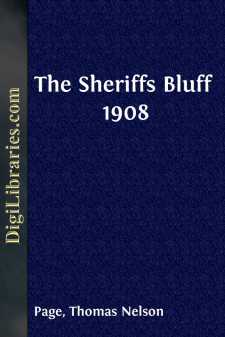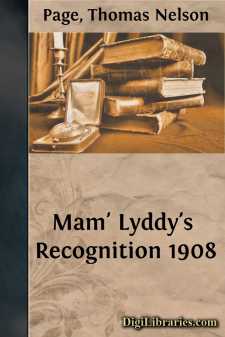Categories
- Antiques & Collectibles 13
- Architecture 36
- Art 48
- Bibles 22
- Biography & Autobiography 813
- Body, Mind & Spirit 142
- Business & Economics 28
- Children's Books 14
- Children's Fiction 11
- Computers 4
- Cooking 94
- Crafts & Hobbies 4
- Drama 346
- Education 46
- Family & Relationships 57
- Fiction 11829
- Games 19
- Gardening 17
- Health & Fitness 34
- History 1377
- House & Home 1
- Humor 147
- Juvenile Fiction 1873
- Juvenile Nonfiction 202
- Language Arts & Disciplines 88
- Law 16
- Literary Collections 686
- Literary Criticism 179
- Mathematics 13
- Medical 41
- Music 40
- Nature 179
- Non-Classifiable 1768
- Performing Arts 7
- Periodicals 1453
- Philosophy 64
- Photography 2
- Poetry 896
- Political Science 203
- Psychology 42
- Reference 154
- Religion 513
- Science 126
- Self-Help 84
- Social Science 81
- Sports & Recreation 34
- Study Aids 3
- Technology & Engineering 59
- Transportation 23
- Travel 463
- True Crime 29
P'laski's Tunament 1891
Categories:
Description:
Excerpt
I had the good fortune to come from "the old county of Hanover," as that particular division of the State of Virginia is affectionately called by nearly all who are so lucky as to have first seen the light amid its broom-straw fields and heavy forests; and to this happy circumstance I owed the honor of a special visit from one of its most loyal citizens. Indeed, the glories of his native county were so embalmed in his memory and were so generously and continuously imparted to all his acquaintances, that he was in the county of his adoption universally known after an absence of forty years as "Old Hanover." I had not been long in F—— when I was informed that I might, in right of the good fortune respecting my birthplace, to which I have referred, expect a visit from my distinguished fellow-countyman, and thus I was not surprised, when one afternoon a message was brought in that "Ole Hanover was in the yard, and had called to pay his bes' bespecks to de gent'raan what hed de honor to come f'om de ole county."
I immediately went out, followed by my host, to find that the visit was attended with a formality which raised it almost to the dignity of a ceremonial. "Old Hanover" was accompanied by his wife, and was attended by quite a number of other negroes, who had followed him either out of curiosity excited by the importance he had attached to the visit, or else in the desire to shine in reflected glory as his friends. "Old Hanover" himself stood well out in front of the rest, like an old African chief in state with his followers behind him about to receive an embassy. He was arrayed with great care, in a style which I thought at first glance was indicative of the clerical calling, but which I soon discovered was intended to be merely symbolical of approximation to the dignity which was supposed to pertain to that profession. He wore a very long and baggy coat which had once been black, but was now tanned by exposure to a reddish brown, a vest which looked as if it had been velvet before the years had eaten the nap from it, and changed it into a fabric not unlike leather. His shirt was obviously newly washed for the occasion, and his high clean collar fell over an ample and somewhat bulging white cloth, which partook of the qualities of both stock and necktie. His skin was of that lustrous black which shines as if freshly oiled, and his face was closely shaved except for two tufts of short, white hair, one on each side, which shone like snow against his black cheeks. He wore an old and very quaint beaver, and a pair of large, old-fashioned, silver-rimmed spectacles, which gave him an air of portentous dignity.
When I first caught sight of him, he was leaning on a long hickory stick, which might have been his staff of state, and his face was set in an expression of superlative importance. As I appeared, however, he at once removed his hat, and taking a long step forward, made me a profound bow. I was so much impressed by him, that I failed to catch the whole of the grandiloquent speech with which he greeted me. I had evidently secured his approval; for he boldly declared that he "would 'a' recognizated me for one of de rail quality ef he had foun' me in a cuppen." I was immediately conscious of the effect which his endorsement produced on his companions. They regarded me with new interest, if any expression so bovine deserved to be thus characterized.
"I tell dese folks up heah dee don't know nuthin' 'bout rail quality," he asserted with a contemptuous wave of his arm, which was manifestly intended to embrace the entire section in its comprehensive sweep. "Dee 'ain' nuver had no 'quaintance wid it," he explained, condescendingly. His friends accepted this criticism with proper submissive-ness.
"De Maconses, de Berkeleyses, de Carterses, de Bassettses, de Wickhamses, de Nelsonses, an' dem!"—(the final ending "es" was plainly supposed to give additional dignity)—"now dee is sho 'nough quality. I know all 'bout 'em." He paused long enough to permit this to sink in....












